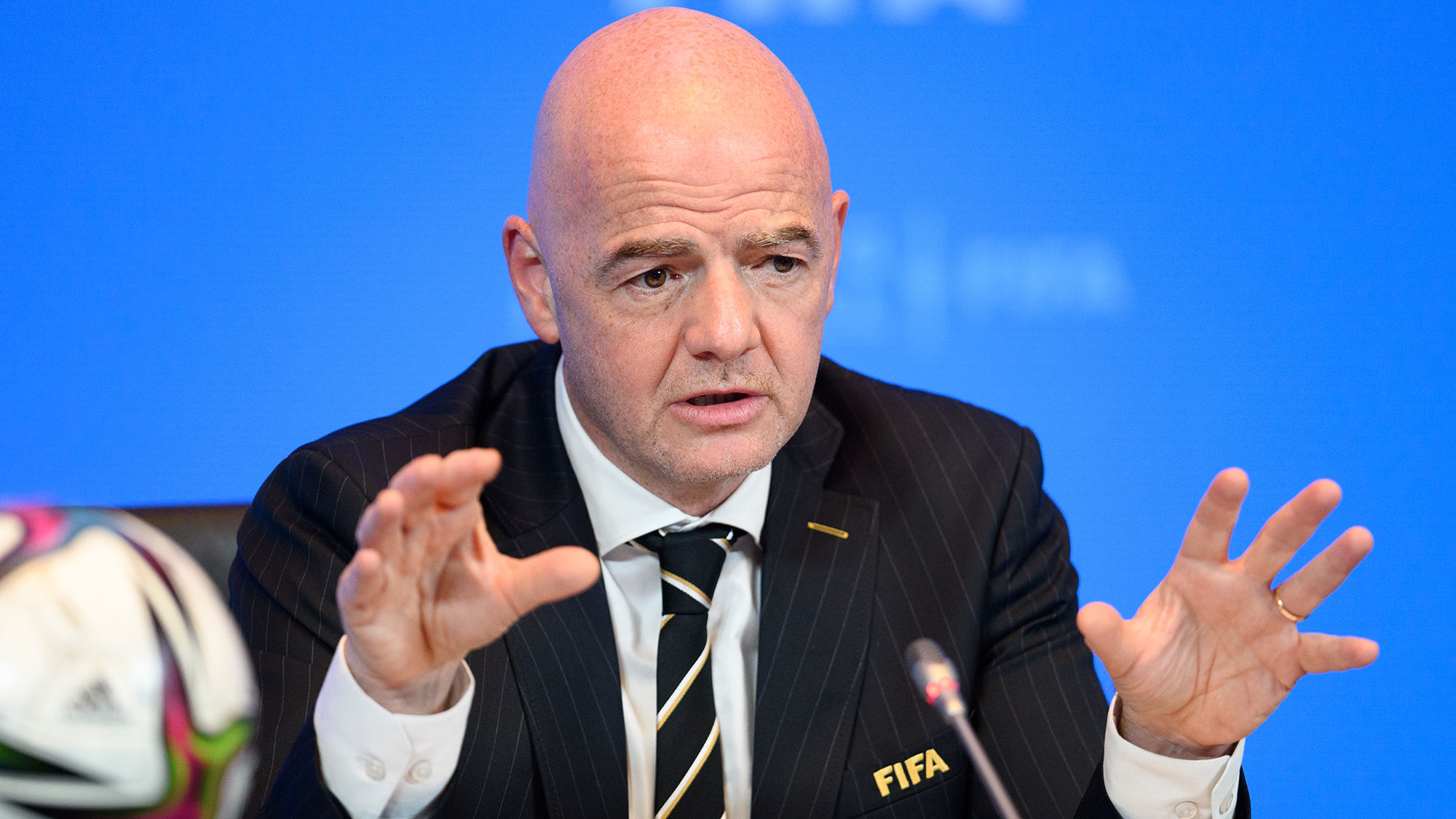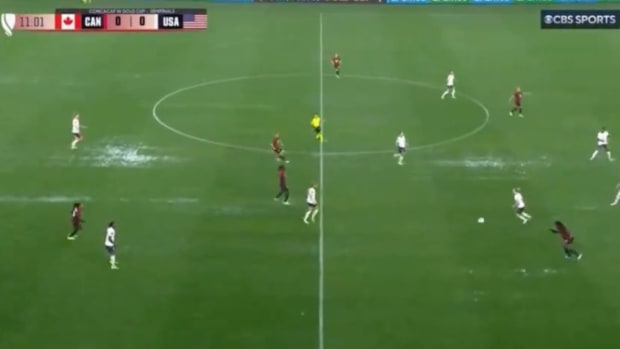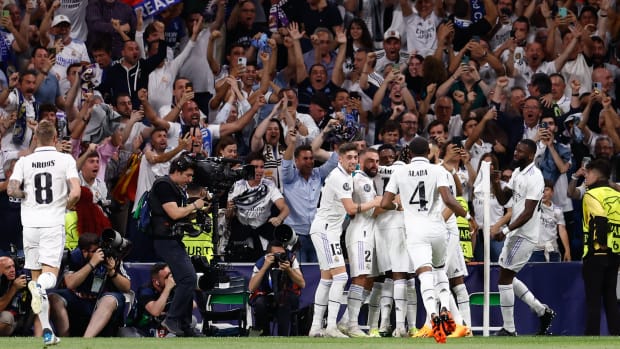Even FIFA Knows It Has No Real Evidence to Support a Biennial World Cup
So it seems now that FIFA president Gianni Infantino will not press for a vote on a biennial World Cup in December. Which is just as well, given he would probably have won the vote but lost the war. With UEFA implacably opposed to the proposal and backed by CONMEBOL—whose president Alejandro Domínguez had seemed in favor in 2019—and, reportedly, one other confederation, there was a serious risk of a rift in the global game. And if Brazil, Argentina and the major European nations are on one side, the other side cannot win.
Even before the news that Infantino would settle for a meeting and discussions with confederation leaders, the sense had been of increasing unease about the opposition. “I am confident that on 20 December we can present a common solution,” Infantino said. “How it will look like ... for me everything is open. … Maybe there is a way we have not yet found but speaking together we can find. So any idea, any proposal is most welcome.”
And that is the problem: There has been a move to rush this through without any consultation beyond Arsène Wenger and various “legends” of the game saying they thought it was a good idea. Wenger, in the last month, has done more to shred his reputation than he did in his final decade at Arsenal. It was only in May that the president of the Saudi Arabia Football Federation, Yasser Al-Misehal, asked for a feasibility study into the possibility of staging a World Cup every two years. And yet before any thorough research has been conducted came the initial attempt to rush it to a vote.
Infantino has talked about the danger that young people are not sufficiently interested in football. They have other distractions, apparently. Andrea Agnelli, the president of Juventus, used similar arguments in demanding a Super League. Football has to keep the young, with their supposed short attention spans, engaged. Yet neither produced any evidence at all to prove the point. And even if it is true, even if football does have to make some particular effort to capture the attention of the next generation, is more World Cups really the way to go about it? “You’re bored of this, have more of it,” seems like a curious logic.
Infantino’s anxiety was betrayed when he responded positively to a suggestion from Tiago Craveiro, the general secretary of the Portuguese federation, that the World Cup could be made biennial if teams did not compete in consecutive editions—a frankly bizarre idea. Is Infantino really saying that the World Cup would be better if there were a tournament in 2028 that didn’t include Brazil, Italy, Spain, England and Portugal and then another one in 2030 that didn’t include Germany, Argentina, France, the Netherlands and Uruguay?
The sense at that point was of desperation. But for what? Why does FIFA need this? Surely the pandemic hasn’t hit its finances that hard. The claim is that a biennial World Cup will be beneficial for development in Asia and Africa. But again, no evidence has been produced to support that claim.
The Confederation of African Football has made vague noises of support, but it has been a FIFA puppet since Fatma Samoura, FIFA's secretary general, was appointed to run the confederation as a general delegate in 2019. She left the position the following year and earlier this year Patrice Motsepe, who is very closely aligned to Infantino, was named president and a number of senior officials were dismissed.
But how exactly does a biennial World Cup help Africa? It may generate funds for FIFA and that in turn may generate increased handouts, but the cost would be clear: the diminution of the Cup of Nations. Perhaps more World Cups would help the likes of Ghana, Nigeria and Algeria, who would expect to qualify more often than not, but what of the mid-ranking powers, the likes of Burkina Faso, Mali and Cape Verde, whose progress has been clear at recent Cups of Nations?
Everything has been couched in the vague terms of general good—spreading the game, engaging youth—but with very little supporting evidence. Which leads to the conclusion that this isn’t really about anything more than FIFA, about generating revenue and making it more powerful. The plans for a reformed calendar were notably lacking in detail on how a rejigged Club World Cup may look or fit in. It’s about claiming control of the calendar from UEFA, which runs the annual Champions League, and that is where the real money is.
But UEFA is rich and is the confederation that boasts all but three former World Cup winners. Its threat to boycott a World Cup or even withdraw from FIFA altogether is serious, particularly when it acts with CONMEBOL's support. Infantino was in danger of overplaying his hand, of destroying FIFA utterly. Would AFC, CAF or Concacaf nations stick with a rump body if UEFA and CONMEBOL established a new global one?
His tactical retreat was the only possible move. Having the votes doesn’t mean much if UEFA can simply walk away.
More Soccer Coverage:







